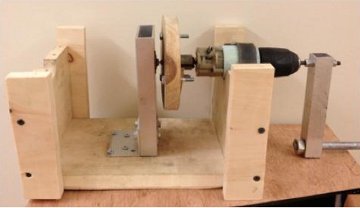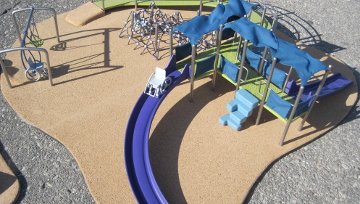
Canadian inventors short listed for Dyson Award
By Design Engineering Staff
General design engineering Innovation James Dyson AwardInnovation award hopefuls include moister trap, centrifuge for developing nations and playground for the handicapped.
Three Canadian inventors have made the top 50 list of international candidates to win the James Dyson Award. Open to university students and recent graduates from 18 countries, the annual award recognizes one budding inventor with a £10,000 prize.
Toronto’s Michal Prywata and Thiago Caires were the 2011 Canadian National Winners for their one-of-a-kind product AMO Arm — a prosthetic limb that is controlled using brain signals. This year, the Canadian contenders’ entries also include a solution for the handicapped as well as two simple but powerful solutions for remote and/or developing communities.
For example, Vancouver, BC’s Mendel Skulski (Carleton University) and his Out of Thin Air water harvesting device is designed as a more efficient use of relief effort cargo space. Leveraging Miura-Ori origami, a flexible bladder reservoir and a collapsible frame, the OOTA can be packed into an approximately .5m3 box, or about the same space two days worth of water for 15 people would occupy.
Once assembled, however, the device can produce approximately 225 litres of clean drinking water per day, given ample humidity levels. To harvest moisture, the OOTA uses cleverly folded sheets of a polymer modeled on the fog-basking Namibian desert beetle, and anodized aluminum foil for radiative cooling.
 Similarly, Vancouver’s Kevin Kung and his MIT teammates have entered their Koriolis Centrifuge that runs on power generated by a common electric hand drill. The device is designed to spin human blood to diagnose fatal diseases like anaemia, which affects 1.3 billion people and is responsible for around 40% of maternal deaths during childbirth. Constructed from readily-available materials, the Koriolis is a cheap ($160) alternative to the expensive or bulky centrifuges presently available.
Similarly, Vancouver’s Kevin Kung and his MIT teammates have entered their Koriolis Centrifuge that runs on power generated by a common electric hand drill. The device is designed to spin human blood to diagnose fatal diseases like anaemia, which affects 1.3 billion people and is responsible for around 40% of maternal deaths during childbirth. Constructed from readily-available materials, the Koriolis is a cheap ($160) alternative to the expensive or bulky centrifuges presently available.
 Finally, Gatineau, QC’s Tanya Nazywalskyj, from the Humber College School of Applied Technology, has designed the ISO PLAY playground that accommodates both paraplegic and able-bodied children. The space features wheelchair accessible slides, swings and bungee rope climbers.
Finally, Gatineau, QC’s Tanya Nazywalskyj, from the Humber College School of Applied Technology, has designed the ISO PLAY playground that accommodates both paraplegic and able-bodied children. The space features wheelchair accessible slides, swings and bungee rope climbers.
Chosen from among more than 700 inventions from 18 countries, the successful entries will now progress to the international final before the winner of the £10,000 prize is announced on November 8, 2012.
The award is open to any student of product design, industrial design or design engineering administered by the James Dyson Foundation, a registered charity supporting design, technology and engineering education, medical research charities and local community projects.
www.jamesdysonaward.org
